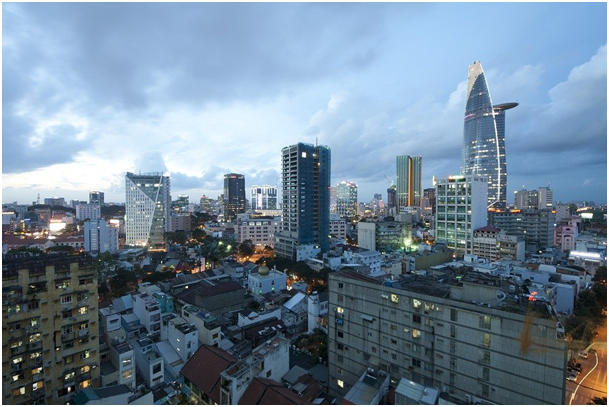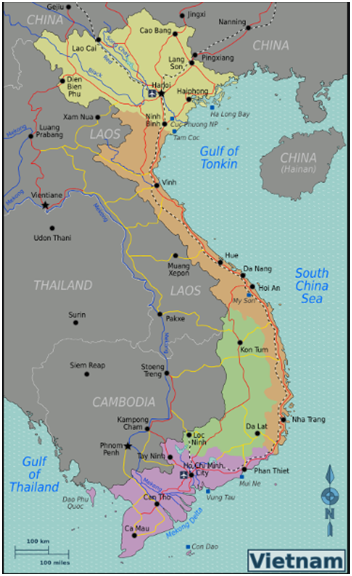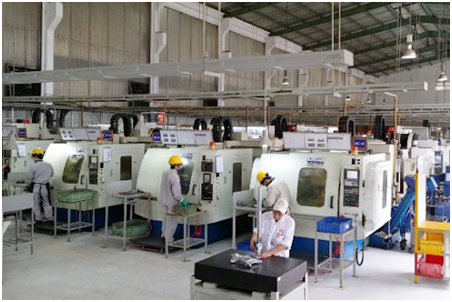
Charles R. Goulding and Ryan Donley explore the rising use of 3D printing in Vietnam and impact on global supply chains.
The Vietnam economy is one of the most progressive and rapidly advancing economies in the world right now. Even after the COVID-19 outbreak, Vietnam is still expected to be one of the few countries with GDP growth this year as they maintained isolation and contained the spread of the virus early on.
The country was already beginning to blossom by adopting policies with a more globalist approach, and now more than ever, Vietnam is being looked at seriously for Foreign Direct Investments (FDI), according to a recent article from The Economist.

Already being established in several industries, most notably apparel manufacturing, Vietnam is becoming increasingly popular among several other supply chains including technology. With rapid growth and advanced innovation, the utilization of 3D printing will be significant in the distribution, manufacturing, and flow of goods and materials.
Industry in Vietnam

Vietnam has been an attractive emerging market as mentioned as they have risen to be one of the leading coffee producers in the world, a leader in textiles and furniture and recently have attracted high-end technology investment from companies such as Samsung, Intel, IBM, and Nokia. As a late bloomer in the developing world, Vietnam presents an interesting supply chain impact within these industries and several others, especially within the 3D printing landscape. By integrating 3D printing in combination with investment from large multinational corporations, Vietnam has a head start in observing the practices and in turn enables greater flexibility and adaptability. For this reason, Research & Development investment into staff and technology is significant to Vietnam as the country can harness an already skillful and affordable labor force attributing to the recent growth. Vietnam also has a strong history of robust machine shops resulting from decades of manufacturing war supplies.
Ongoing 3D Printing in Vietnam

An example of 3D printing growth in Vietnam can be attributed to Tuan TranPham, the Chief Revenue Officer at Arevo, who has also worked for Z Corp, 3D Systems, Objet, Stratasys, GE/Arcam, and Desktop Metal and is also of Vietnamese origin. In a recent interview, Tuan explicitly stated the relevance of Vietnam as a supply chain.
Tuan is helping develop Superstrata as the world’s first 3D printed unibody bike and e-bike. Tuan then described installing twelve 3D printers in Vietnam with plans of adding hundreds of machines to assist in the overwhelming demand of the bike as it has over $4 million in crowdfunding as of this writing. Tuan was nice enough to write and compliment us after our recent Vespa 3D printing article. Tuan also described Vietnam’s machining expertise as coordinated to the post 3D printing finishing process.
3D printing and similar practices may be eligible for the Research & Development Tax Credit, which is briefly described below.
The Research & Development Tax Credit
Enacted in 1981, the now permanent Federal Research and Development (R&D) Tax Credit allows a credit that typically ranges from 4%-7% of eligible spending for new and improved products and processes. Qualified research must meet the following four criteria:
- Must be technological in nature
- Must be a component of the taxpayer’s business
- Must represent R&D in the experimental sense and generally includes all such costs related to the development or improvement of a product or process
- Must eliminate uncertainty through a process of experimentation that considers one or more alternatives
Eligible costs include US employee wages, cost of supplies consumed in the R&D process, cost of pre-production testing, US contract research expenses, and certain costs associated with developing a patent.
On December 18, 2015, President Obama signed the PATH Act, making the R&D Tax Credit permanent. Beginning in 2016, the R&D credit can be used to offset Alternative Minimum tax for companies with revenue below $50MM and, startup businesses can obtain up to $250,000 per year in payroll tax cash rebates.
Conclusion
Vietnam provides the world with an important supply chain alternative. 3D printing can make this alternative even more valuable.
